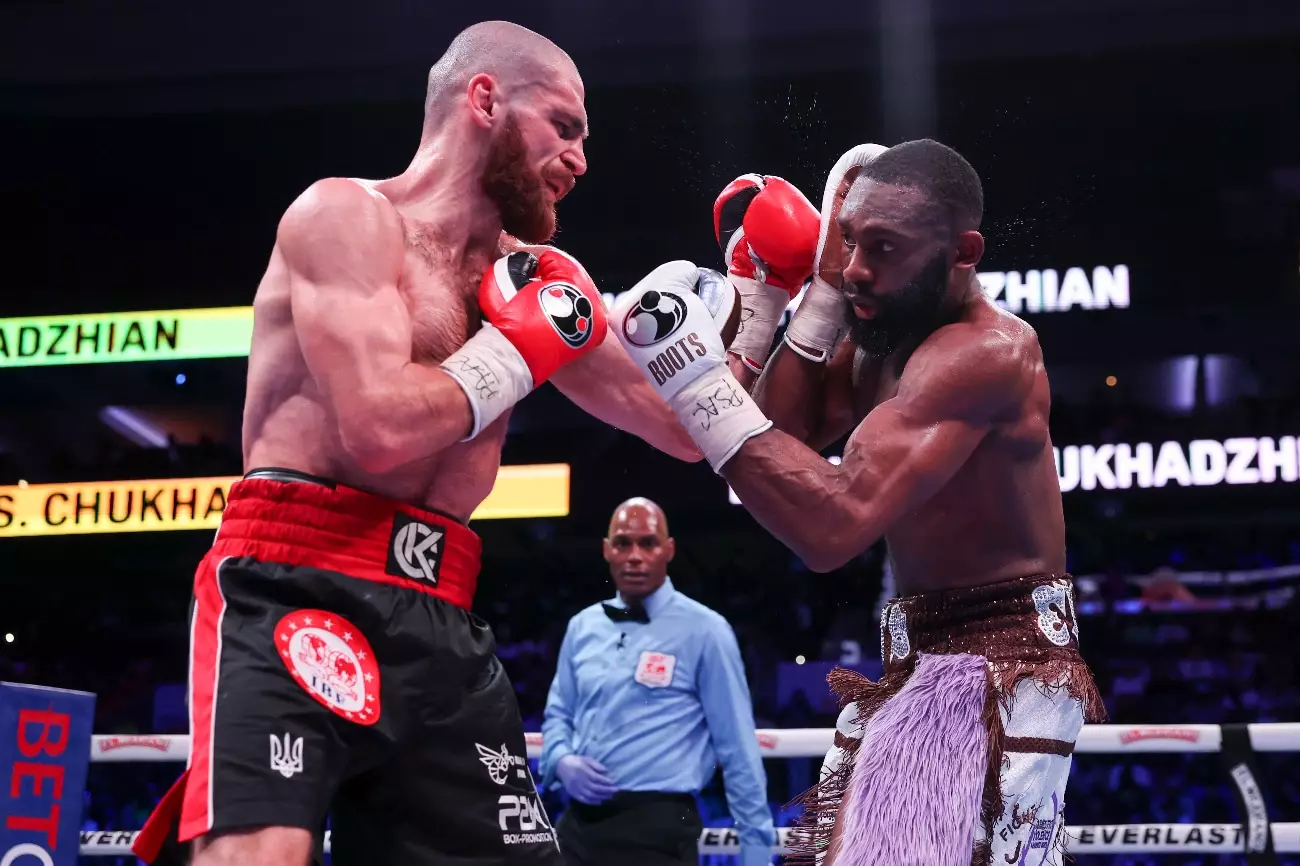Jaron “Boots” Ennis, the IBF welterweight champion, continued his undefeated streak with a 12-round unanimous decision victory over Karen Chukhadzhian at the Wells Fargo Center in Philadelphia. However, what was expected to be a showcase fight quickly morphed into a complex test of Ennis’s skills, mental fortitude, and adaptability in the ring. While the judges rendered scores of 119-107, 117-109, and 116-110 in favor of Ennis, the fight’s dynamics painted a different picture—one that raises questions about the champion’s current trajectory.
Chukhadzhian’s performance in the ring was surprisingly formidable. Despite being viewed mostly as an underdog with a 24-3 record, the challenger utilized his speed and technical prowess to land significant blows against Ennis. His ability to surprise Ennis with well-timed shots exposed vulnerabilities in the champion’s defense. Ennis, known for his power and confidence, found himself taking punches that he had not anticipated—something atypical for the usually composed fighter. The resilience demonstrated by him, particularly his ability to absorb punches, highlights just how precarious the fight became.
Ennis showcased his punching power by knocking Chukhadzhian to the canvas in the fifth round after landing a series of damaging shots. Yet, Chukhadzhian’s ability to recover and adjust his strategy post-knockdown must not go unrecognized. He exhibited a level of grit and determination that pushed him to maintain competitiveness throughout the fight, ultimately leading to a tension-laden final few rounds where he connected with forceful blows that appeared to leave an impact on Ennis.
Throughout the match, Ennis struggled to impose his will on Chukhadzhian. The Ukrainian fighter’s erratic movements and tactical feints disrupted Ennis’s usual rhythm and left him looking disoriented at times. Chukhadzhian’s clever holding tactics received a point deduction in the tenth round; however, it did not deter him from continuing his strategic assault on Boots. In rounds 11 and 12, Chukhadzhian capitalized on the apparent confusion afflicting the champion, landing punches that whiplashed Ennis’s head and intensified the atmosphere in the arena.
What emerged was a fascinating psychological clash. Ennis’s apparent disconnect from his father and trainer Derek “Bozy” Ennis added another layer to this complex bout. While they had clearly been objectives for the fight—effectively managing distance, engaging properly, and utilizing angles—Ennis often seemed caught between listening to his father’s strategic instructions and navigating the immediate chaos inside the ring.
Post-fight interviews with Ennis revealed a fighter grappling not only with the physical challenge he had just faced but also with an existential questioning of his career’s direction. Expressions of dissatisfaction with his performance echoed throughout his responses. His contemplations about potentially moving up to the 154-pound division indicated a recognition of the challenges that lie ahead physically, mentally, and tactically. The switch of weight classes also speaks to the maturity of Ennis; at 27 years of age, he acknowledges the dynamics of change that come with aging in a highly competitive sport.
His statements, particularly regarding his “okay” feeling about the victory, could suggest that Ennis is at a crossroads. Is he simply worn down by the demands of the welterweight division, or is he encountering a deeper crisis of confidence following a lackluster performance? The fight against Chukhadzhian may serve as both a warning and a catalyst for the champion—underscoring that complacency can jeopardize even the most talented fighters.
What should have been a victorious night for Jaron Ennis transformed into a perplexing reflection on his skill set, strategy, and the demands of boxing at a high level. While his record remains immaculate, the complexity of his fight with Chukhadzhian signals that the champion must evolve to contend with upcoming competition. Ennis’s reaction post-fight paints a portrait of a captivating fighter in self-examination—navigating the uncertain waters of weight classes and performances, aiming for unity between physical ability and tactical execution. Only by confronting these challenges head-on will Boots solidify his legacy in boxing.

